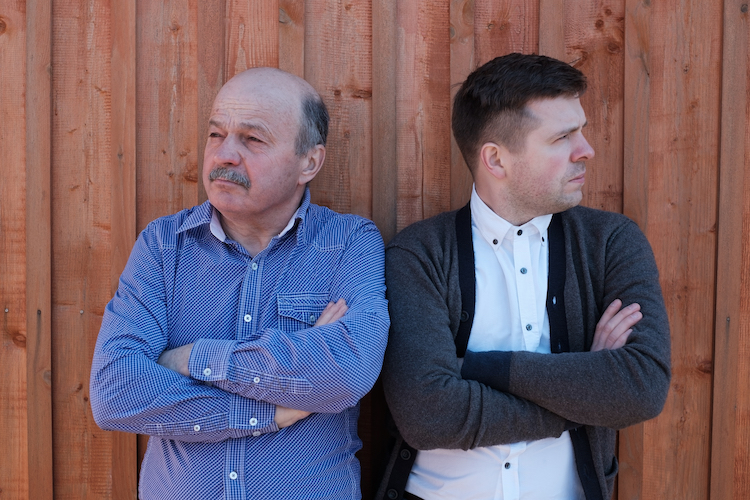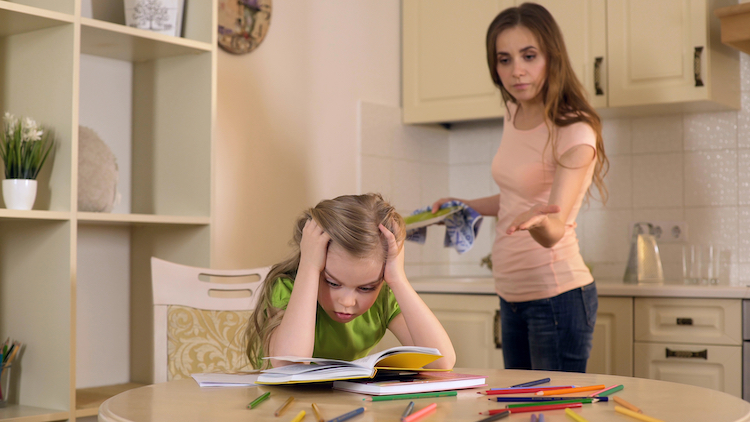The pain of estrangement is crushing, but understanding the reasons can lead to healing.

It’s every parent’s worst fear—your adult child has cut ties, and now you’re left grappling with confusion and heartache. The silence can feel deafening. The unanswered messages, the missed milestones, the feeling of being erased from someone you once cradled in your arms—these moments create a kind of grief that’s difficult to put into words. You question every memory, every decision, wondering if this could have been prevented.
What makes estrangement so painful is the loss of connection with someone you love so deeply. While some distance may be temporary, for others it may last years—or indefinitely. There’s rarely a single event that leads to a break like this. Instead, it’s often a slow buildup of hurts, unmet needs, and miscommunications. If you’re searching for clarity, one or more of these 13 heartbreaking causes may help shed light on why the relationship unraveled—and what, if anything, can still be done to rebuild the bridge.
1. They Feel Like You Never Truly Listened to Them

There’s a difference between hearing someone and truly listening, according to Sanjana Gupta at Very Well Mind. Many adult children report feeling as though their concerns, dreams, or emotions were consistently minimized or brushed aside growing up. Even well-intentioned parents sometimes dismiss their child’s words in an effort to fix things quickly or offer advice. But over time, not being heard can erode trust, safety, and intimacy.
When a child doesn’t feel seen or validated, especially during crucial emotional moments, they may begin to internalize the belief that their thoughts don’t matter. As adults, they often become more assertive about their emotional needs, and if those needs still go unmet, distancing may become a form of self-protection. In their minds, breaking contact may be the only way to finally feel heard—even in silence.
2. Your Constant Criticism Pushed Them Away

Criticism, even when meant to be constructive, can create long-lasting wounds if it outweighs encouragement or praise. If your child grew up feeling like nothing they did was good enough, they may have started to internalize a sense of failure or inadequacy. Over time, this imbalance can become too painful to carry, especially if they continue to feel judged during adulthood.
What’s most damaging is not always the content of the critique, but the frequency and tone. Constant correction—about their appearance, choices, or lifestyle—sends the message that your love is conditional, as stated by Georgie Stedman at Medium.com. If they sense that their worth in your eyes depends on being someone they’re not, emotional withdrawal may feel like the only way to escape the shame and guilt associated with never being “enough.”
3. They Feel Controlled or Manipulated by You

Even as adults, some children feel suffocated by a parent’s ongoing attempts to direct their lives, as shared by Fiona Yassin at The Wave Clinic. Whether it’s subtle guilt-tripping, emotional blackmail, or overt pressure, controlling behavior can leave your child feeling powerless in a relationship that should offer mutual respect. Independence is a core human need, and when that need is consistently undermined, resentment can build.
If your child perceives your involvement in their life as overbearing rather than supportive, they may reach a point where detachment feels like the only way to assert their autonomy. They may feel that maintaining contact means forfeiting their ability to make authentic choices. Estrangement, painful as it is, can sometimes represent freedom from emotional entanglement that felt suffocating.
4. Past Abuse or Trauma Has Never Been Addressed

Unhealed wounds don’t disappear just because time has passed. If your child experienced emotional, verbal, physical, or even sexual abuse within the home, and those experiences were never openly acknowledged or validated, it’s likely they carry deep scars. The absence of accountability can make it nearly impossible for them to feel safe in your presence.
Even if the abuse wasn’t directly from you, your perceived failure to protect or believe them can be just as damaging. In their eyes, severing ties might be the only path toward peace and healing. Reconnection often requires acknowledgment, remorse, and a commitment to change. Without that, remaining in contact may feel like a re-traumatization of their unresolved pain.
5. They Can’t Handle Your Constant Negativity

Some parents, perhaps unaware, carry an energy of chronic pessimism or emotional criticism that slowly erodes their child’s mental well-being. Frequent negative comments—whether about the world, others, or their own lives—can become emotionally taxing. Your child may have found themselves absorbing your gloom, even as they tried to remain hopeful or optimistic.
As adults, children may reach a breaking point where they realize that ongoing exposure to that negativity affects their own mood and self-worth. They might dread phone calls, visits, or messages because they anticipate judgment or complaint. In distancing themselves, they may not be rejecting you as a person, but rather choosing to protect their own emotional health.
6. You’ve Never Apologized When You Were Wrong

Admitting fault isn’t easy, especially when it involves revisiting painful or complicated memories. But when a parent refuses to acknowledge their mistakes, it creates a dynamic where the child feels dismissed and invalidated. Everyone makes errors, but the unwillingness to apologize leaves wounds open and festering.
Children don’t need perfect parents—they need accountable ones. An apology doesn’t erase the past, but it can serve as a powerful signal that you’re capable of empathy and reflection. If your child sees you as emotionally inaccessible or defensive, they may have stopped trying to connect. Without shared responsibility, the relationship can feel like an emotional dead end.
7. You Didn’t Support Them During a Major Life Crisis

When life falls apart, people remember who stood by them—and who didn’t. If your child went through a divorce, health crisis, financial ruin, or other painful event, and felt abandoned or judged rather than supported, that memory may define the relationship in their mind. Emotional absence in these key moments can feel like betrayal.
The hurt is compounded when they see you supporting others or being emotionally available in ways they didn’t experience themselves. They may have needed a shoulder to cry on or simply someone to listen without fixing or advising. Without that support, their trust in you may have eroded, leaving a void too wide to bridge with small talk or pleasantries.
8. They’re Tired of Being the “Perfect” Child in Your Eyes

Praise can be its own kind of pressure. If your child has always been expected to achieve, succeed, and shine in ways that reflect well on you, they may feel boxed into a role rather than seen for who they truly are. The pressure to maintain that “golden child” image can be isolating and exhausting, especially when it comes at the expense of vulnerability.
Beneath the surface of perfectionism is often a deep fear of losing love and approval. When a child begins to rebel against that mold, or when life throws them off that pedestal, they may feel shame for no longer being your ideal. Distancing can become a means of reclaiming authenticity—a way of saying, “I need to be loved for who I am, not who you want me to be.”
9. You Refuse to Respect Their Boundaries

Boundaries are not walls—they are bridges to healthier relationships. But when those boundaries are ignored, dismissed, or violated, your child may feel like their autonomy and safety aren’t respected. Repeated intrusions—such as showing up uninvited, demanding access to personal information, or overstepping in their relationships—send the message that their limits don’t matter.
Over time, this can breed deep frustration. Your child may have tried to set clear expectations only to be met with guilt-tripping or defensiveness. Eventually, they may decide that no relationship is better than one where their boundaries are under constant siege. Respect isn’t just about what you say; it’s about what you stop doing when someone asks you to.
10. Your Values Clash Too Strongly with Theirs

As children grow into adults, they develop beliefs, identities, and values that often differ from those they were raised with. If these differences—political, religious, cultural, or lifestyle-related—have led to repeated arguments or feelings of rejection, your child may have concluded that emotional safety requires distance. No one wants to feel like who they are is unacceptable to someone they love.
The tension becomes unbearable when love feels conditional on conformity. Even if you think you’re offering wisdom or moral clarity, your child may experience it as rejection or condescension. Over time, disagreements can become synonymous with shame, and the only way they know to protect themselves is to sever the connection completely.
11. They Resent You for Putting Your Needs Before Theirs

Children are deeply intuitive, and they often pick up on when they are not the priority in their parent’s life. Whether it was a focus on your career, romantic partner, personal ambitions, or emotional needs, your child may have felt sidelined or emotionally abandoned. These early imprints can create long-lasting resentment.
Even in adulthood, if they continue to feel like your world revolves around you—with little room for their feelings, challenges, or needs—they may conclude the relationship is unbalanced. In their view, keeping their distance might be the only way to avoid reopening the wounds of childhood neglect or emotional invisibility.
12. They Feel Like You’re Too Judgmental About Their Life Choices

Even well-meant questions or observations can come across as judgment. Whether you criticize who they married, how they raise their children, or the path they’ve chosen in life, these comments can chip away at your child’s sense of self. No adult wants to feel like every visit is a performance or interrogation.
When your child feels like they’re never enough in your eyes, they may stop trying to connect. Judgment, even cloaked in concern, creates a hostile emotional environment. Over time, avoiding you altogether may seem less painful than enduring another conversation that leaves them feeling criticized, misunderstood, or shamed.
13. They’ve Simply Outgrown the Relationship

Not every estrangement stems from conflict or trauma. Sometimes, the change is more subtle—your child evolves, their life takes a different direction, and the connection naturally fades. They may crave a relationship with more depth, emotional reciprocity, or shared values than they believe you can provide.
It’s a hard truth, but in some cases, growth leads to separation. Your child may be on a journey of self-discovery that doesn’t include the family dynamics they grew up with. This doesn’t always mean they don’t love you—it may just mean they need something different than the relationship offers right now. Understanding this can bring peace, even in the absence of reconciliation.
